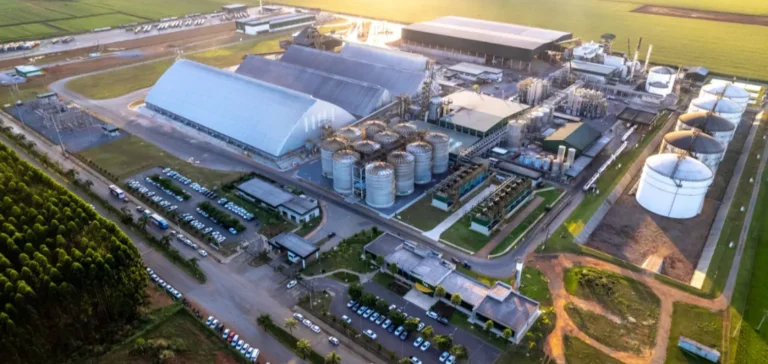Frontier Infrastructure Holdings LLC has formalised a strategic partnership with Gevo Inc. and the Verity platform to launch North America’s first fully integrated carbon management solution for the ethanol sector. The initiative, announced in Dallas, gives ethanol producers access to a comprehensive infrastructure ranging from carbon capture to permanent sequestration, while ensuring digital emissions tracking.
A pipeline-free alternative
The project is built on the Sweetwater Carbon Storage Hub, owned by Frontier and located in Wyoming. It includes the country’s deepest Class VI sequestration well and spans nearly 100,000 acres of geological pore space. Through collaboration with Gevo, which specialises in bioenergy carbon capture and storage (BECCS) technologies, and the integration of Verity’s digital tracking platform, the initiative forms a turnkey solution. The inclusion of Union Pacific Railroad’s CO₂ rail network bypasses constraints linked to the lack of pipeline infrastructure, a critical issue for nearly 60% of ethanol producers located more than 80 kilometres from planned routes.
Steven Lowenthal, Co-Chief Executive Officer of Frontier Infrastructure, stated that the model allows facilities to monetise their CO₂ streams in under two years, compared to several years for current alternatives.
Direct response to ethanol market demand
The solution targets a market estimated at 70 million tonnes of high-purity CO₂ produced annually by more than 200 ethanol plants across North America. The rail-based modular approach enables these sites to access carbon capture tax credits and align with low-carbon fuel standards, which are increasingly decisive in energy supply contracts.
In parallel, Frontier has issued a Notice to Proceed for the Granger Carbon Terminal (GCT), a logistics facility for rail and truck CO₂ transloading to the Sweetwater hub. Phase I, scheduled for 2027, will handle 500,000 metric tonnes annually, with capacity scalable up to 2 million tonnes depending on market demand.
Initial industry commitments
Firm commitments have been made by Midwest-based operators, including Midwestern Renewable Energy, a longstanding Verity client. The GCT terminal will become the central platform of Frontier’s “Stack to Sequestration” strategy, linking emission sources to sequestration sites by rail.
Jim Jandain, Chief Executive Officer of Midwestern Renewable Energy, said the integrated solution enables his company to move from decision to execution in less than two years, adding that the initiative aims to position the firm in the low-carbon fuel market before the current opportunity window closes.






















